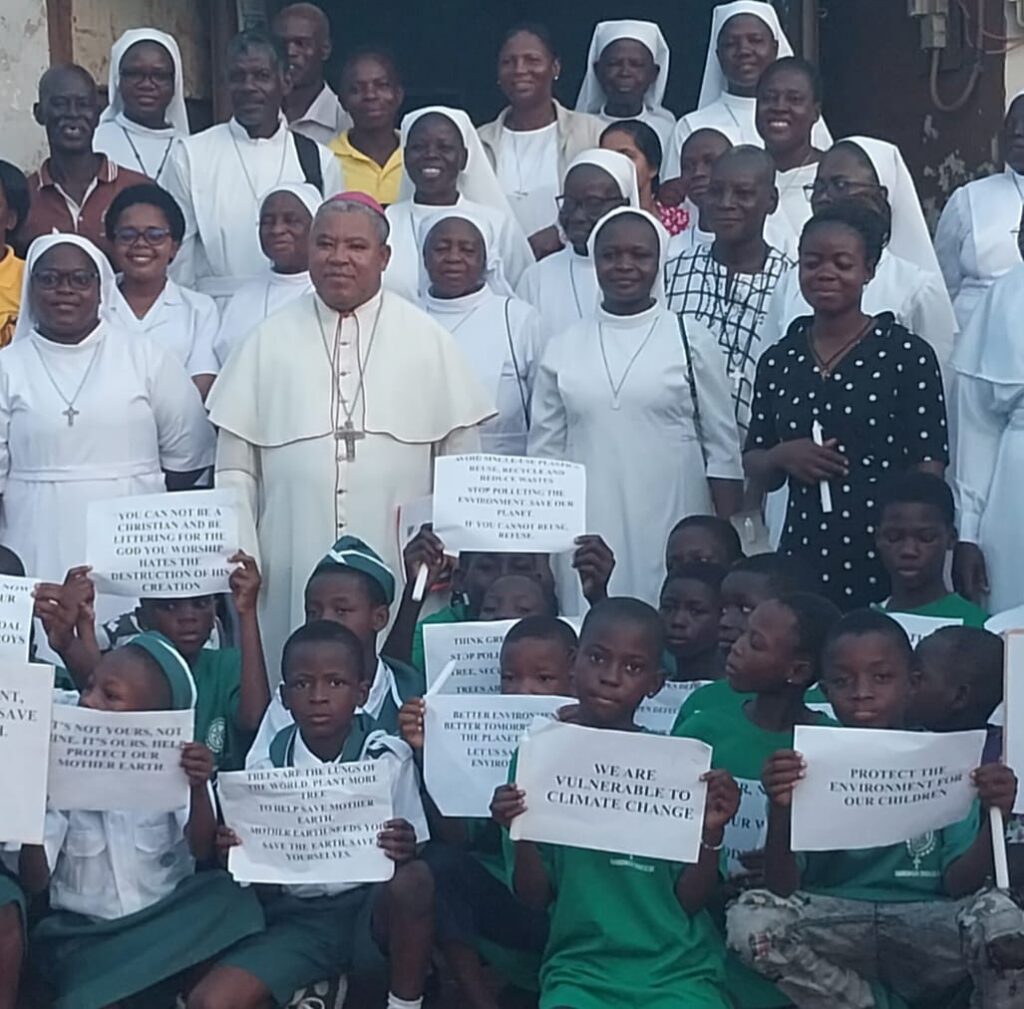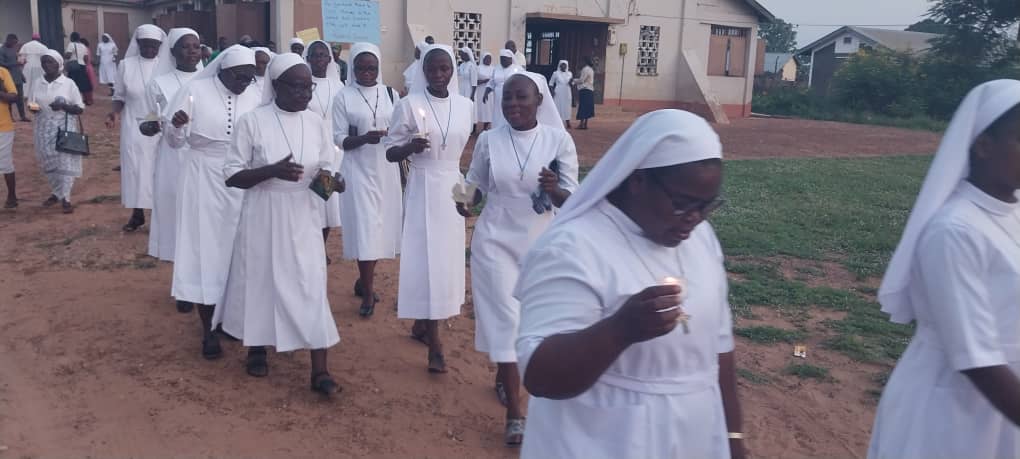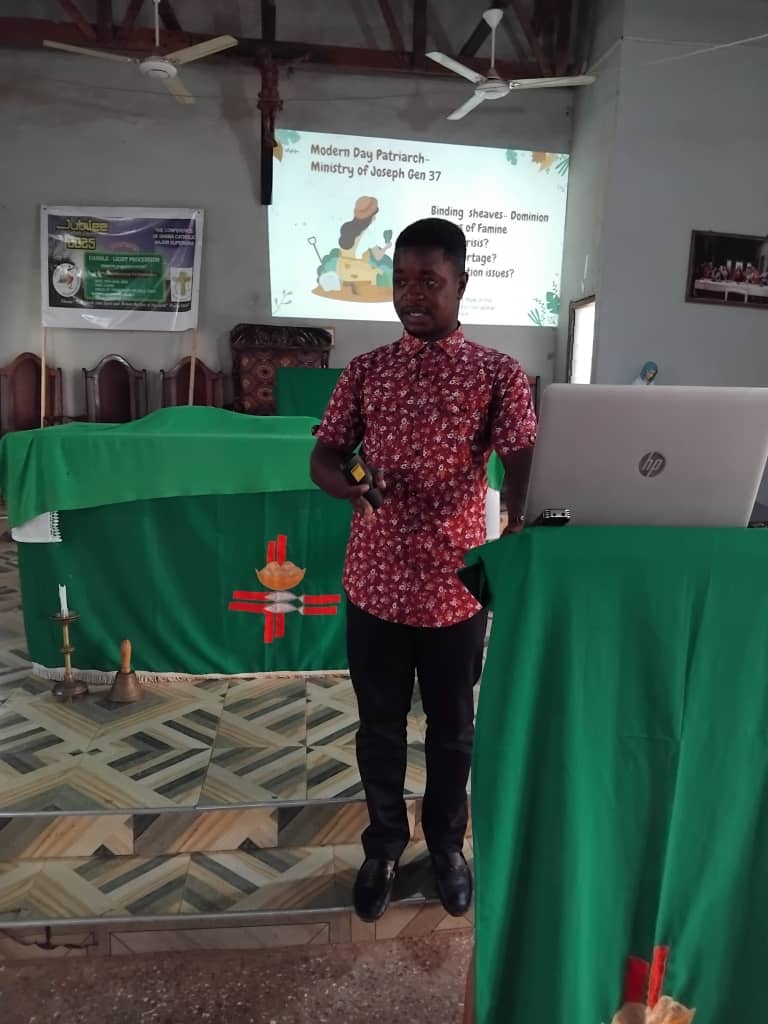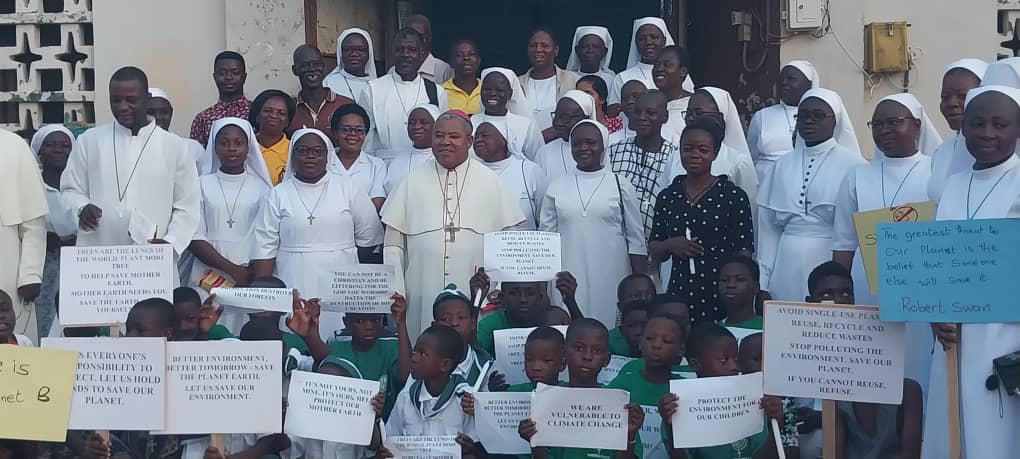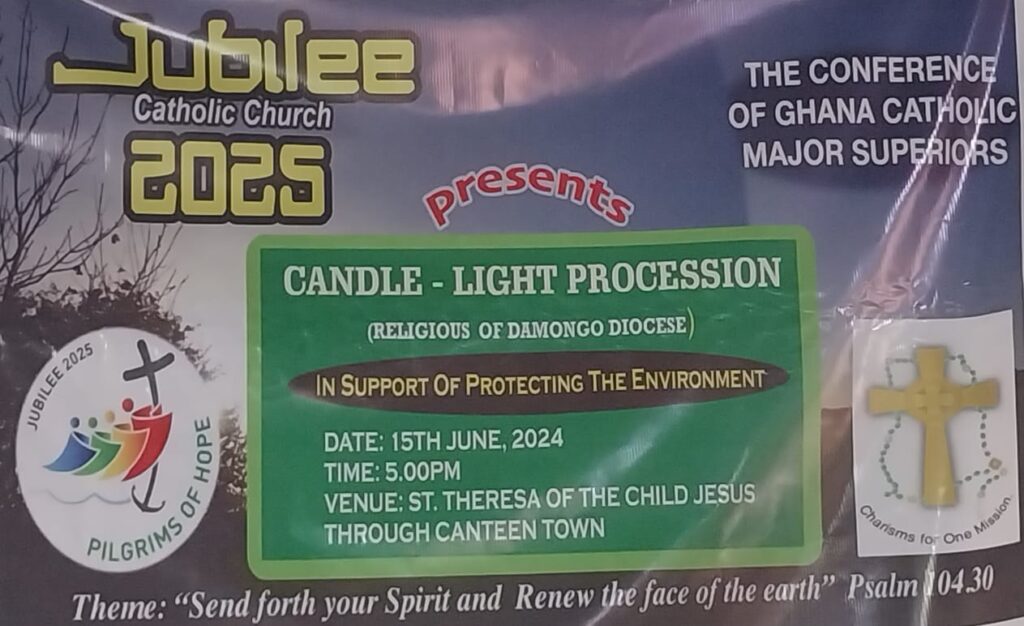Damongo-Canteen, Ghana – June 15, 2024:
By; Gogu Edwin/Padfm.com.gh/0555588660
In a passionate address, Most Rev. Peter Paul Y. Angkyier, Bishop of the Damongo Diocese, underscored the critical importance of environmental stewardship and renewal in the context of the current global ecological crisis. His speech highlighted the intertwining themes of the Jubilee Year and the pressing need for action against climate change.
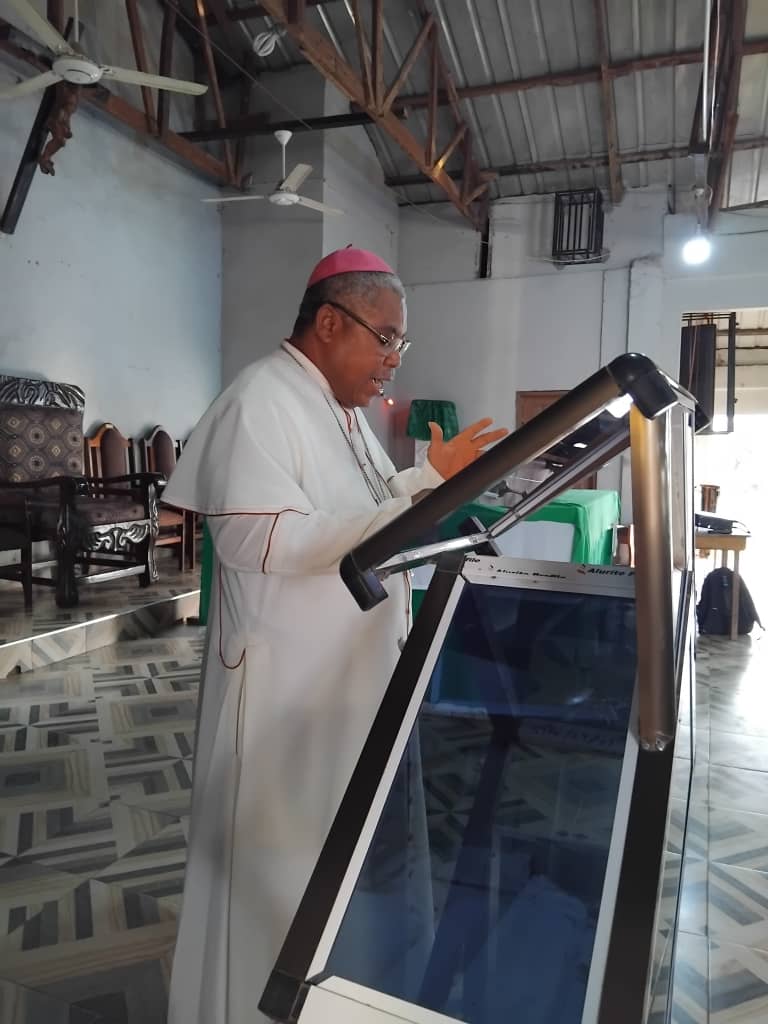
Speaking at a special event organized by the Conference of Major Superiors of Religious, Ghana, through the Religious Women and Men at the Diocesan level and spearheaded by Sr. Lydia Berewono, SMI, and Bro. Basilide Dong, FIC, The Bishop emphasized that the Jubilee Year is a time for significant spiritual and environmental renewal. He drew parallels between the biblical concept of the Jubilee, a time of forgiveness and restoration, and the modern need for ecological conservation.
The Jubilee Year, rooted in the biblical tradition, originates from the Book of Leviticus in the Old Testament. According to Leviticus 25, the Jubilee Year is celebrated every 25 years and is a time when slaves are freed, debts are forgiven, and land is left fallow. This year of rest and renewal serves as a profound manifestation of God’s mercy and justice, offering a fresh start for individuals and the community. In the Christian tradition, the Jubilee Year is seen not only as a time for physical and economic renewal but also for spiritual rejuvenation, reflecting liberation from sin and a renewed commitment to God’s commandments.
Bishop Angkyier articulated that the Jubilee Year offers a profound opportunity for Christians to reflect on their relationship with the environment. “The climate crisis is a matter of great importance. Pope Francis has called on pilgrims to experience renewal, not just in Rome but also in their local churches,” he said. This global celebration, he noted, is an invitation for all to renew their commitment to caring for God’s creation.
He elaborated on the biblical foundation for this perspective, referencing the tradition of letting land lie fallow and forgiving debts during the Jubilee Year as acts of mercy and restoration. “In our Christian perspective, we see this as a time for the liberation of Christians from sin and evil, and a chance for renewal in our spiritual lives,” he stated.
A presentation, delivered by Mr. Isaac Kofi Ntori highlighted the urgent environmental issues facing the world today. “The environment is the foundation and support system of human existence and survival,” citing alarming statistics on food waste, biodiversity loss, and pollution. According to the presentation by Mr Isaac one-third of the food produced globally is wasted, biodiversity has declined by an average of 69% since 1970, and plastic pollution continues to devastate aquatic ecosystems.
The presentation highlighted various initiatives undertaken by religious communities in Ghana and beyond to combat ecological degradation. Examples include the Green Anglican Movement’s tree planting efforts and the Methodist Church of Ghana’s participation in the Green Ghana Initiative.
The Bishop stressed that environmental issues require urgent and collective action. “The Pope has emphasized that through the Jubilee Year celebrations, we may be renewed in our hope and in our homes,” he said, urging all, from young to elderly, to actively participate in this renewal. He encouraged the faithful to join hands with religious leaders and contribute to efforts aimed at renewing the face of the earth.
In closing, Bishop Angkyier welcomed all attendees and expressed his hope for a successful and impactful celebration. “May the light of Christian hope illuminate every man and woman as a message of God’s love,” he concluded, reinforcing the church’s role as a beacon of hope and action in the face of environmental challenges.
The Jubilee Year celebration in Damongo serves as a powerful reminder of the interconnectedness of faith and environmental stewardship, inspiring communities to take meaningful steps towards preserving the planet for future generations.
